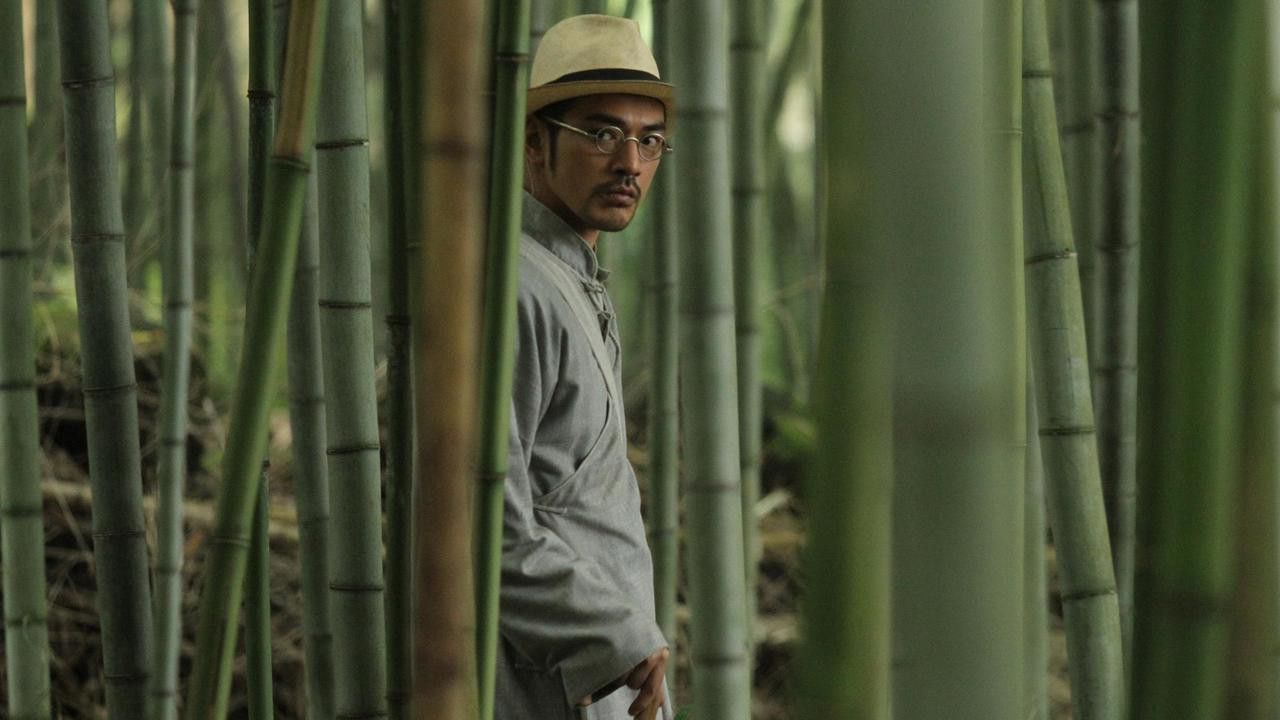Wuxia (Peter Chan, 2011)

Known in the US as Dragon, the actual title of Peter Chan’s 2011 film is Wuxia, the name of a genre of both film and literature, a word that is a compound of “wu” (military) and “xia” (chivalry, more or less). Wuxia stories are stories of warrior heroes, knights-errant, and wandering swordsman who walk the earth behaving nobly, following their code of honor above all else. They tend to inhabit a world outside the normal bounds of society called “jianghu” (literally “rivers and lakes”), filled with martial artists of various clans and sects that are perpetually at war.
Chan, director of the great 1996 romance Comrades, Almost a Love Story sets his film in 1917, the early Republican era in China, one of intense modernization between the demise of the Empire and the war with Japan. Kaneshiro Takeshi is a rationalist detective who, investigating the clearly-in-self-defense killing of a couple of thugs, begins to suspect that the hero, Donnie Yen, is more than a mere paper-maker. Yen, Kaneshiro believes, is a highly developed martial artist, and someone like that, with those skills, can only be an outlaw, an escaped killer. This setup is somewhat akin to David Cronenberg’s A History of Violence, but what follows is (mostly) its own thing.
Kaneshiro’s investigation is fascinating. The fight sequence that kicks the plot into motion comes shortly after the film begins. We see it play out as Yen fights with apparent desperation and lack of skill, a normal guy flailing about, lucking into defeating two more powerful adversaries. But as Kaneshiro looks into it, we get the scene replayed, Chan shifting camera angles to reveal the subtleties of Yen’s technique, digitally freezing and zooming the frame for a closer look, even using CGI to follow nerve points through the body, showing the scientific, physiological basis for the apparently magical fighting techniques.
The film repeatedly questions the utility of Kaneshiro’s pursuit. Yen, regardless of his past, is clearly now a good man. A husband (married to Tang Wei, most known here as the star of Ang Lee’s Lust, Caution) and father and pillar of his community (his paper mill has even led to an economic revival of his village). He is liked and respected by everyone in town. But Kaneshiro’s sense of duty has led him to repress his sense of empathy (literally, with acupuncture). He has made himself into a coldly rational detective, black and white only, consequences be damned. It’s no surprise that Kaneshiro is right that Yen is concealing a dark past, the question is how can he atone for it?
One answer is by going to jail for his crimes. That is society’s answer, and it is Kaneshiro’s as well as he breaks a promise to Yen and reports his suspicions to the proper authorities. But that way leads to disaster, as corrupt officials tip off Yen’s former gang as to his whereabouts, leading to bloody chaos in the formerly peaceful village and a striking homage to Chang Cheh’s The One-Armed Swordsman (hint: someone loses an arm). Yen directs some tremendous fight sequences here, featuring older stars like Kara Hui and Jimmy Wang Yu (the One-Armed Swordsman himself).
The question remains of who is the more chivalrous: the detective who follows the code of law despite all opposition and consequence, humane or otherwise; or the crook who searches for personal reformation outside the designated legal channels? Kaneshiro’s ostensibly normal and respectable world, the world of law and government and society is corrupt, passionless and unfeeling, for all its scientific advancement and insight. Can Yen’s jianghu, for all its superstition, backwardness and ruthless, bloody horror somehow be the more humane world, in that it also allows the space and freedom necessary for redemption? There’s no easy answer and Chan doesn’t give us one. He leaves us, like Cronenberg did, with the family at the breakfast table, a replay of the film’s opening sequence. Same motions, same family, irrevocably changed.
